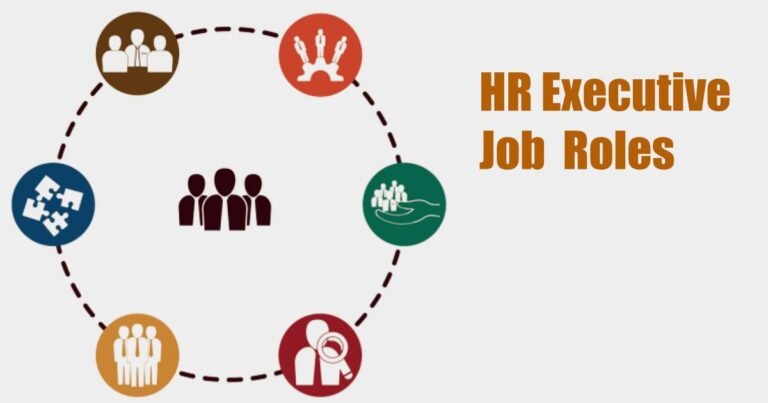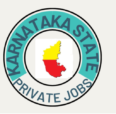Day-to-Day Tasks of an HR Executive: A Comprehensive Guide.

Human Resources (HR) plays a pivotal role in the smooth functioning of any organization. In the Indian context, the HR domain is dynamic, requiring professionals to juggle multiple tasks daily. This blog provides a detailed, step-by-step breakdown of the day-to-day responsibilities of an HR Executive, the qualifications required, salary expectations, and their reporting hierarchy.
Who is an HR Executive?
An HR Executive is a professional responsible for overseeing and managing various human resource functions, including recruitment, employee relations, payroll, training, compliance, and more. Their primary goal is to align the workforce with organizational objectives while fostering a positive work environment.
Minimum Qualifications for an HR Executive
-
Educational Background:
- A Bachelor’s degree in fields like Human Resources, Business Administration, Psychology, or any related discipline is the minimum requirement.
- A Master’s degree (MBA/PGDM) in HR or Industrial Relations is preferred by many organizations.
-
Skills:
- Strong communication and interpersonal skills.
- Basic knowledge of Indian labor laws and compliance (e.g., EPF, ESI, Shops and Establishments Act).
- Proficiency in HR software (e.g., Zoho People, SAP SuccessFactors) and MS Office tools.
-
Experience:
- Entry-level roles often require 0-2 years of experience, while mid-level executives may need 2-5 years.
Current Salary Expectations
The average salary of an HR Executive in India ranges between ₹2.5 to ₹5 lakhs per annum, depending on the industry, location, and the candidate’s expertise. Metropolitan cities like Bengaluru, Mumbai, and Delhi offer higher compensation compared to smaller towns.
Reporting Hierarchy of an HR Executive
In most organizations, the HR Executive typically reports to the HR Manager or HR Generalist. The standard hierarchy is:
- HR Interns/Assistants (if any) report to the HR Executive.
- HR Executive reports to the HR Manager.
- HR Manager or Generalist reports to the HR Head/Director.
- The HR Head/Director reports to the CEO/COO.
Step-by-Step Guide to the Daily Tasks of an HR Executive
1. Start the Day with Planning.
The day begins with reviewing the agenda and prioritizing tasks. HR Executives often start their day by:
-
- Checking emails for updates from the management or employee requests.
- Reviewing tasks assigned via HR management software. (Tools like Zoho People, Keka HR, GreytHR, and Darwinbox ,SAP SuccessFactors and ADP Workforce Now are known for features such as attendance tracking, payroll processing, and employee self-service portals)
- Preparing a daily to-do list, prioritizing urgent matters like interviews or employee grievances.
2. Recruitment and Onboarding.
Recruitment is one of the core responsibilities of an HR Executive. Activities include:
a. Reviewing Applications:
-
- Screening resumes and shortlisting candidates based on job requirements.
- Coordinating with hiring managers to understand their staffing needs.
b. Conducting Interviews:
-
- Scheduling interviews for shortlisted candidates.
- Assisting in the interview process by preparing questionnaires or conducting initial rounds (telephonic or face-to-face).
c. Offer Letter and Onboarding:
-
- Drafting offer letters for selected candidates.
- Guiding new hires through onboarding procedures, including document verification, issuing ID cards, and introducing them to team members.
- Conducting induction programs to familiarize new employees with company policies and culture.
d. Processing Employee Documentation:
-
- Managing essential documentation such as contracts, personal details, and tax forms during the onboarding process.
- Ensuring compliance with company policies and regulatory requirements during the hiring phase.
3. HR Policy Implementation.
An essential function of HR Executives is assisting in developing and updating HR policies and procedures. Key tasks include:
-
- Collaborating with the HR Manager to revise policies based on evolving regulations or organizational needs.
- Communicating policy updates to employees through workshops, email notifications, or training sessions.
- Ensuring these policies are consistently enforced across departments to maintain a fair and compliant workplace.
4. Administrative HR Tasks.
HR Executives are the backbone of HR operations, handling crucial administrative functions such as:
-
- Maintaining Employee Records:
- Organizing personnel files, including performance reviews, training records, and disciplinary actions.
- Regularly updating employee databases in HR software to reflect changes in job roles, salaries, or personal information.
- Tracking Workforce Metrics:
- Monitoring employee turnover rates, absenteeism trends, and other key metrics.
- Generating reports to support strategic decision-making by the HR Manager or leadership team.
- Processing Routine Documentation:
- Drafting and issuing employment letters, confirmation letters, or promotion letters as needed.
- Maintaining Employee Records:
5. Employee Engagement.
Employee engagement activities foster a healthy work environment and improve retention rates. Key tasks include:
-
- Organizing team-building events, celebrations, or welfare activities (e.g., festival gatherings, birthday celebrations).
- Addressing employee grievances promptly and empathetically.
- Conducting employee satisfaction surveys to gather feedback.
6. Attendance and Payroll Management.
HR Executives are responsible for maintaining accurate attendance and ensuring timely salary disbursement. Tasks include:
a. Attendance Tracking:
-
- Verifying daily attendance records through biometric systems or attendance software.
- Monitoring late arrivals, early exits, or absenteeism and following up with employees.
b. Payroll Processing:
-
- Ensuring accurate inputs (e.g., leaves, overtime, deductions) for payroll calculation.
- Coordinating with the accounts department to process salaries.
- Issuing payslips and resolving salary-related queries.
7. Compliance and Legal Adherence.
HR Executives play a critical role in ensuring compliance with Indian labor laws. They handle tasks such as:
-
- Regulatory Compliance:
- Filing reports for EPF, ESI, and other statutory bodies.
- Staying updated on amendments to labor laws and implementing changes within the organization.
- Audits and Record Management:
- Preparing for internal or external audits by ensuring all employee files and HR policies are up-to-date.
- Regulatory Compliance:
8. Training and Development.
HR Executives contribute to the personal and professional growth of employees through training programs. Activities include:
-
- Identifying training needs by collaborating with department heads.
- Coordinating training sessions (in-house or external).
- Collecting feedback from participants to measure the training’s effectiveness.
9. Performance Management.
Monitoring employee performance and assisting in appraisal processes are key functions:
-
- Tracking Key Performance Indicators (KPIs) or targets for employees.
- Organizing performance reviews with managers.
- Supporting the implementation of reward and recognition programs for high-performing employees.
10. Grievance Redressal and Conflict Resolution.
HR Executives often mediate to resolve conflicts and ensure workplace harmony:
-
- Addressing employee concerns regarding workload, team dynamics, or management issues.
- Conducting one-on-one meetings with employees to understand and resolve grievances.
- Collaborating with legal advisors in cases of workplace disputes.
11. End-of-Day Tasks.
Before wrapping up, HR Executives review the day’s achievements and plan for the next day:
-
- Updating the HR database with completed tasks (e.g., new hires, payroll changes).
- Preparing reports on recruitment status, attendance, or grievances for the HR Manager.
- Responding to any pending queries from employees or management.
Key Traits of a Successful HR Executive.
-
- Empathy: Essential for addressing employee concerns effectively.
- Adaptability: To handle sudden changes, such as urgent hiring needs or policy updates.
- Attention to Detail: Vital for managing records, payroll, and compliance tasks accurately.
- Problem-Solving Skills: Required for grievance handling and conflict resolution.
- Time Management: To juggle multiple tasks efficiently.
Conclusion:
An HR Executive’s role is a blend of operational, strategic, and administrative responsibilities, requiring a proactive approach and multitasking skills. By implementing policies, maintaining compliance, and ensuring effective communication, HR Executives act as the vital link between employees and management. With growing opportunities and evolving roles in the HR domain, this career path offers immense potential for individuals passionate about people management and organizational growth.
#DayToDayTasksOfHRExecutive #RoleOfHRExecutive #HRResponsibilities #HumanResourcesCareer #HRExecutiveRole #HRAdminTasks #HRPolicyUpdates #HROnboarding #HRCompliance #EmployeeEngagement #RecruitmentTips #PerformanceManagement #PayrollManagement #GrievanceHandling #HRTipsForBeginners #HRWithZohoPeople #HRUsingKeka #PayrollWithGreytHR #HRWithDarwinbox #HRWithSuccessFactors #HRUsingADP

I’m studying in MBA
Join WhatsApp group for more Fresher HR jobs
https://chat.whatsapp.com/L488Ms7emI2BJ9h4EcqIAe
I am fresher I have completed MBA in HR
Join WhatsApp group for more Fresher HR jobs
https://chat.whatsapp.com/L488Ms7emI2BJ9h4EcqIAe
I am shilpa khavekar I have completed MBA in women university vijayapur